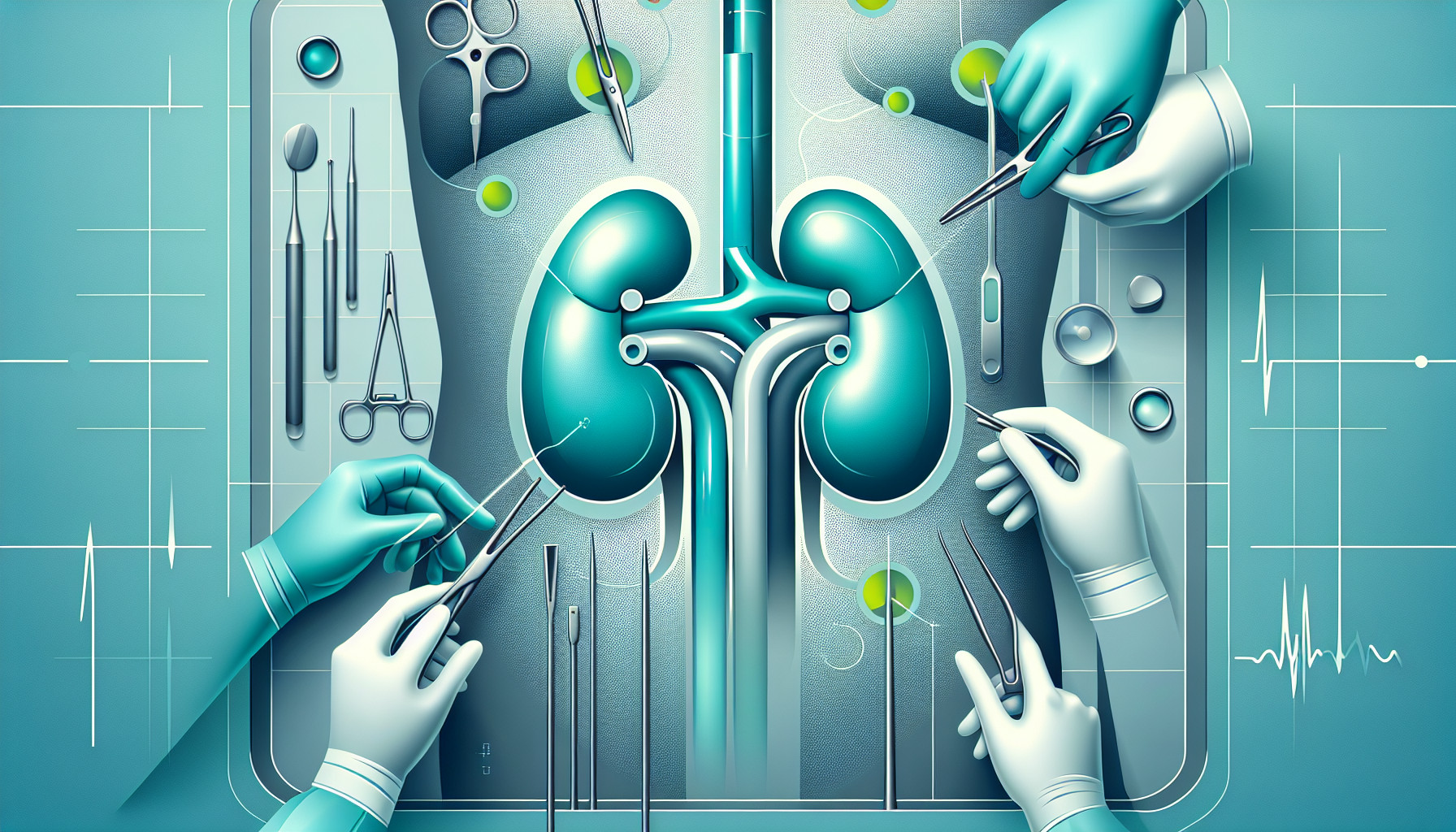Our Summary
This paper discusses the challenges in testing new kidney transplant treatments, particularly due to low rates of long-term outcomes such as survival and transplant success. Traditional and new methods to speed up the testing of new treatments are explored, including using surrogate endpoints, which are stand-in markers for the desired outcome. Some examples of these markers include the rate of kidney filtration, levels of a specific type of protein in urine, presence of certain antibodies, and results from biopsy samples. However, missing data can introduce bias when using these surrogate endpoints.
The paper mentions that a method commonly used in other areas of medicine, which uses multiple primary endpoints including surrogate endpoints, has not yet been used in kidney transplant research.
New clinical endpoints that focus on the safety of the treatment and the quality of life of the patient have been recently standardized and should always be reported in clinical trials, regardless of the main outcome being measured.
The authors conclude that it is crucial to define surrogate endpoints, establish standards for reporting outcomes, and develop statistical methods to analyze them correctly in order to effectively test and implement new treatments to improve long-term outcomes in kidney transplantation.
FAQs
- What are some surrogate endpoints that are increasingly being used for organ transplantation trial design?
- Why is the use of surrogate endpoints limited in kidney transplant studies?
- How important are new clinical endpoints that focus on treatment safety and patient quality of life in kidney transplantation trials?
Doctor’s Tip
A helpful tip that a doctor might tell a patient about kidney transplant is to closely monitor their kidney function through regular blood tests and follow-up appointments with their healthcare team. By staying proactive and vigilant about their kidney health, patients can help ensure the success of their transplant and catch any potential issues early on. Additionally, following a healthy lifestyle, including a balanced diet, regular exercise, and avoiding tobacco and excessive alcohol consumption, can also support the long-term success of the transplant.
Suitable For
Patients who are typically recommended for kidney transplant include those with end-stage renal disease who are not able to adequately manage their condition with dialysis or other treatments. This can include patients with conditions such as chronic kidney disease, polycystic kidney disease, diabetes, and autoimmune diseases affecting the kidneys. Patients who are otherwise in good overall health and are willing and able to comply with the post-transplant care regimen are also good candidates for kidney transplant.
Timeline
Before kidney transplant:
- Patient is diagnosed with end-stage renal disease and undergoes evaluation for kidney transplant candidacy.
- Patient is placed on the transplant waiting list and waits for a suitable donor match.
- Patient undergoes pre-transplant evaluations and tests to ensure they are healthy enough for surgery.
- Patient receives notification of a suitable donor match and prepares for surgery.
After kidney transplant:
- Patient undergoes kidney transplant surgery and begins recovery in the hospital.
- Patient is closely monitored for signs of rejection or complications post-transplant.
- Patient starts a regimen of immunosuppressive medications to prevent rejection of the new kidney.
- Patient attends regular follow-up appointments with transplant team to monitor kidney function and overall health.
- Patient adjusts to life with a new kidney and experiences improved quality of life compared to before transplant.
What to Ask Your Doctor
- What are the potential risks and benefits of a kidney transplant for me?
- How long is the typical recovery time after a kidney transplant?
- What is the success rate of kidney transplants at this facility?
- How will I be monitored and followed up after the transplant?
- What medications will I need to take after the transplant and what are their potential side effects?
- How will the transplant impact my overall health and any other medical conditions I may have?
- What is the process for finding a suitable donor for the transplant?
- Are there any lifestyle changes I will need to make after the transplant?
- How long can I expect the transplanted kidney to last?
- What are the alternatives to a kidney transplant and how do they compare in terms of success and risks?
Reference
Authors: Maggiore U, Leventhal J, Cravedi P. Journal: Curr Opin Organ Transplant. 2020 Feb;25(1):1-7. doi: 10.1097/MOT.0000000000000719. PMID: 31815790
